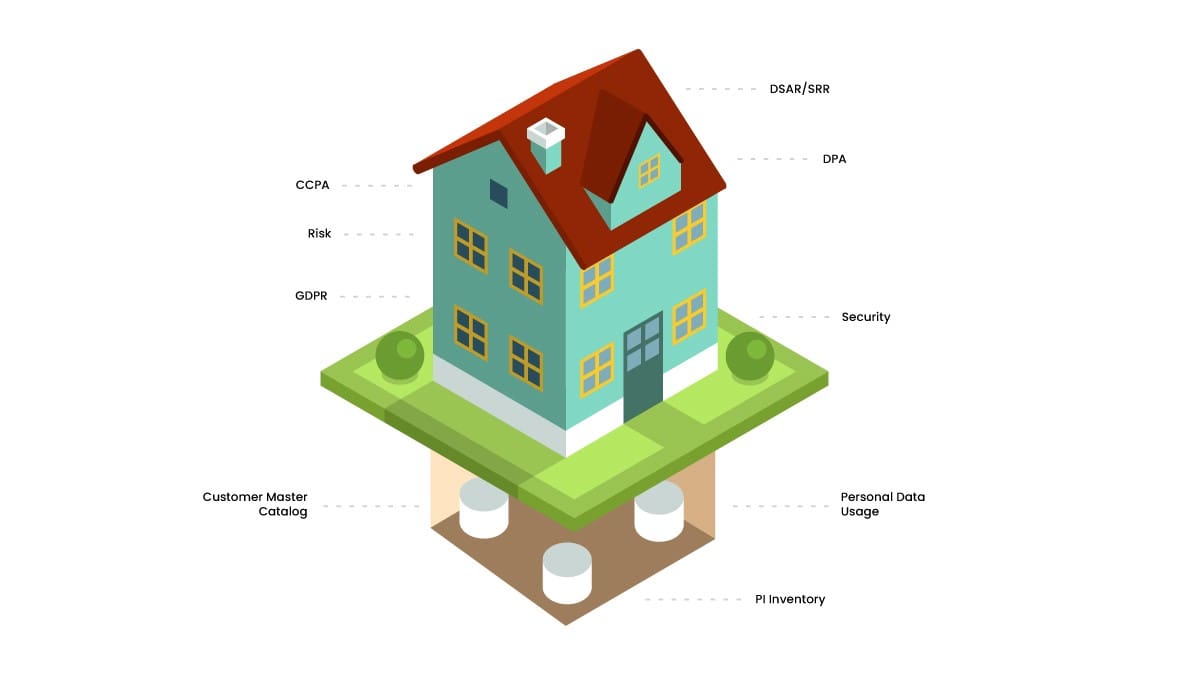Trying to keep up with ever-changing privacy regulations may feel like running on a treadmill; sure, you’re moving — but you aren’t getting anywhere. 1touch.io’s Itzhak Assaraf discusses a solid strategy for dealing with this constant change.
Data and Privacy Regulations: The Ultimate Moving Targets
Keeping on top of something that never stops shifting is challenging.
Consider for a moment the information security world: Preventing threats from making their way past a changing perimeter is definitely no small task. But in that scenario, while the perimeter itself may change, thus requiring new methods, the nature of the data beyond that border is typically of little importance — as long as it’s secured.
Not so with privacy regulations and the data they concern; when it comes to privacy, we’ve got a dual challenge going on.
The first part concerns keeping up with the dynamic and always-changing PI (personal information) and PII (personally identifiable information) we hold regarding data subjects: Each time a customer makes a purchase or updates or redacts their information in your system, the data you hold on them changes accordingly.
Then there is the second, constantly-in-flux element: Keeping up-to-date with an ever-evolving and growing privacy regulation ecosystem. Ever since the EU’s GDPR (General Data Protection Regulation) came along in 2018, new laws have been cropping up, each with their own requirements and definitions. For example, while GDPR grants data subjects eight rights, the California Consumer Privacy Act (CCPA) grants five. And while Brazil’s Lei Geral de Proteção de Dados (LGPD) has 10 different categories of data that can be collected, GDPR only allows for six.
And then regulations like the Payment Card Industry Data Security Standard (PCI DSS), the Sarbanes-Oxley Act (SOX), the Gramm-Leach-Bliley Act (GLBA), Canada’s Protection of Personal Information and Electronic Documents Act (PIPEDA) and the Health Insurance Portability and Accountability Act (HIPAA) all have their own requirements and define personal data in their own ways. Furthermore, state-issued regulations will soon be enacted in New York, Maryland, Massachusetts, Hawaii and North Dakota. Each of these burgeoning laws has its own stringencies and nuances regarding the types of PI and PII considered to be under their jurisdiction.
And, somehow, your business must be able to keep up with all these moving parts to ensure you do right by your customers who have entrusted you with their data. Moreover, you need to be able to respond to data subject requests in a specified number of days, according to each regulation. When a deluge of requests come in, ensuring you respond in the most optimal and complete way can be daunting. So how in the world are organizations supposed to keep up with changing regulations and dynamic data?
Laying the Foundation
The first thing to know is that it is possible to stay ahead of the game despite the constant flux state in data regulations.
To illustrate, let’s imagine you’ve got a sprawling apartment building with a solid foundation. Builders may add on floors, knock some down, remodel things and even put in a pool here and there – but no matter how the walls, furniture, fixtures and tenants may change over time, the foundation remains solid. Immutable.
 The essence of any and all privacy laws is always the same: to grant data subjects with rights and to enable them to take charge of their data. The definition of rights changes from regulation to regulation (e.g., GDPR does not grant the same rights as CCPA or LGPD), and regulations and what they require from us are subject to change as well. And as we all know, the data we hold changes all the time.
The essence of any and all privacy laws is always the same: to grant data subjects with rights and to enable them to take charge of their data. The definition of rights changes from regulation to regulation (e.g., GDPR does not grant the same rights as CCPA or LGPD), and regulations and what they require from us are subject to change as well. And as we all know, the data we hold changes all the time.
Adhering to all these moving parts would be very hard, if not impossible, without a solid foundation based on an entirely transparent understanding of the data you hold.
Once you’ve established your foundation, adhering to regulations becomes simply a matter of understanding what data correlates to which regulation. This means that even if an addendum is made to a regulation or you enter a new market (e.g., you begin to serve Singapore and need to adhere to the Personal Data Protection Act (PDPA)), you are still good to go, because you already have the basics required by any privacy regulation. From that point on, it’s all nuanced procedures and management that you can adopt and retrofit to any regulation.
Putting it Into Practice
To make this a reality, you need the right tools and policies. Let’s explore how organizations can ensure they have the rock-solid foundation needed to easily manage and sustainably comply with any privacy regulation, no matter how they may change:
Get Legal Guidance – Initially, it’s wise to consult with in-house or external legal counsel (which likely depends on the size and nature of your business) to understand which privacy laws you need to be adhering to – and how that reality might change if there are changes within your organization. Not every law will apply to every company, so first determine which are the ones you need to be addressing.
Make Privacy the Company Default – Organizations that choose to embrace privacy as their new default will have an easier time implementing any new initiatives and navigating older ones as they change. Make sure that the concern for privacy extends beyond the legal, privacy and security teams by including other teams in discussions regarding policies and finding out what they need to make privacy a reality. Create policies that anyone in your organization can easily understand, and work to rebrand customer data as something to be protected and upheld, instead of an asset to be mined, analyzed and sold to the highest bidder.
Invest in Data Management/Governance, Regulation and Compliance Tools – Start by selecting a tool that enables you to create and manage compliance policies. Look for a legal-oriented tool that has an excellent track record of always staying up-to-date with the latest changes, nuances and regulations – and that covers as many regulations as possible. These are usually subscription-based tools, making it simple to switch providers if the one you’ve chosen does not meet your needs.
Don’t Forget About Data Discovery and Mapping Tools – Here is how you can effectively establish that solid foundation: A robust data discovery and mapping tool will continuously reveal all the data you hold, enabling you to correlate that data to identities and become sustainably compliant with any regulation. By locating all PII and PI, whether in motion or at rest, structured or unstructured, known or unknown, you can create the definitive basis upon which any privacy laws can easily be obeyed. The ability to automatically discover the PI and PII you hold, no matter where it is stored on your network, enables the creation of a solid foundation. As long as you have a solid data discovery process, no matter what else is in flux, you can fulfill requirements and remain sustainably compliant, no matter how laws and data may evolve.
Conclusion
Privacy laws – and the data organizations hold – change at a breakneck pace, but that shouldn’t be a source of dread for businesses. With the right approach to dealing with the constantly changing state in place, it all becomes a matter of establishing a strong foundation and then plugging the remaining variables into place.



 Itzhak Assaraf is CTO and Co-Founder of
Itzhak Assaraf is CTO and Co-Founder of 






